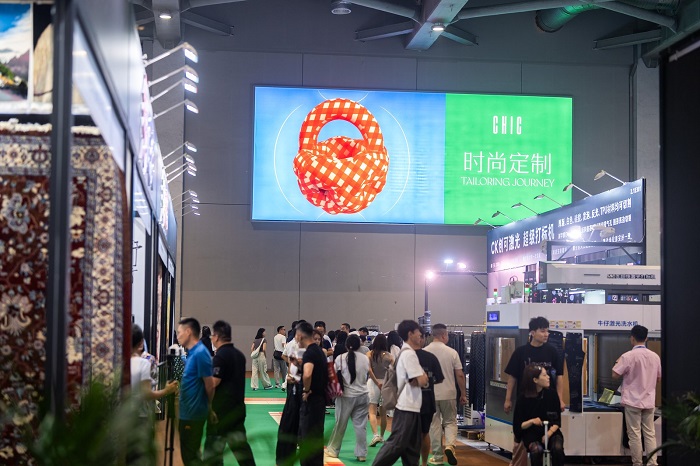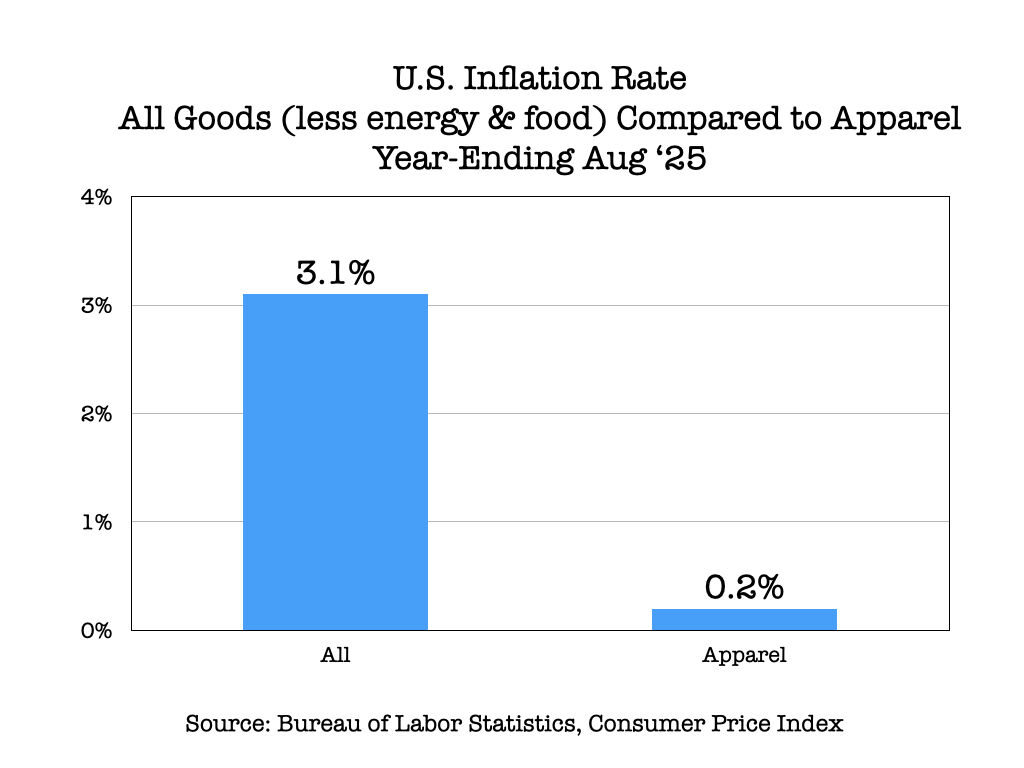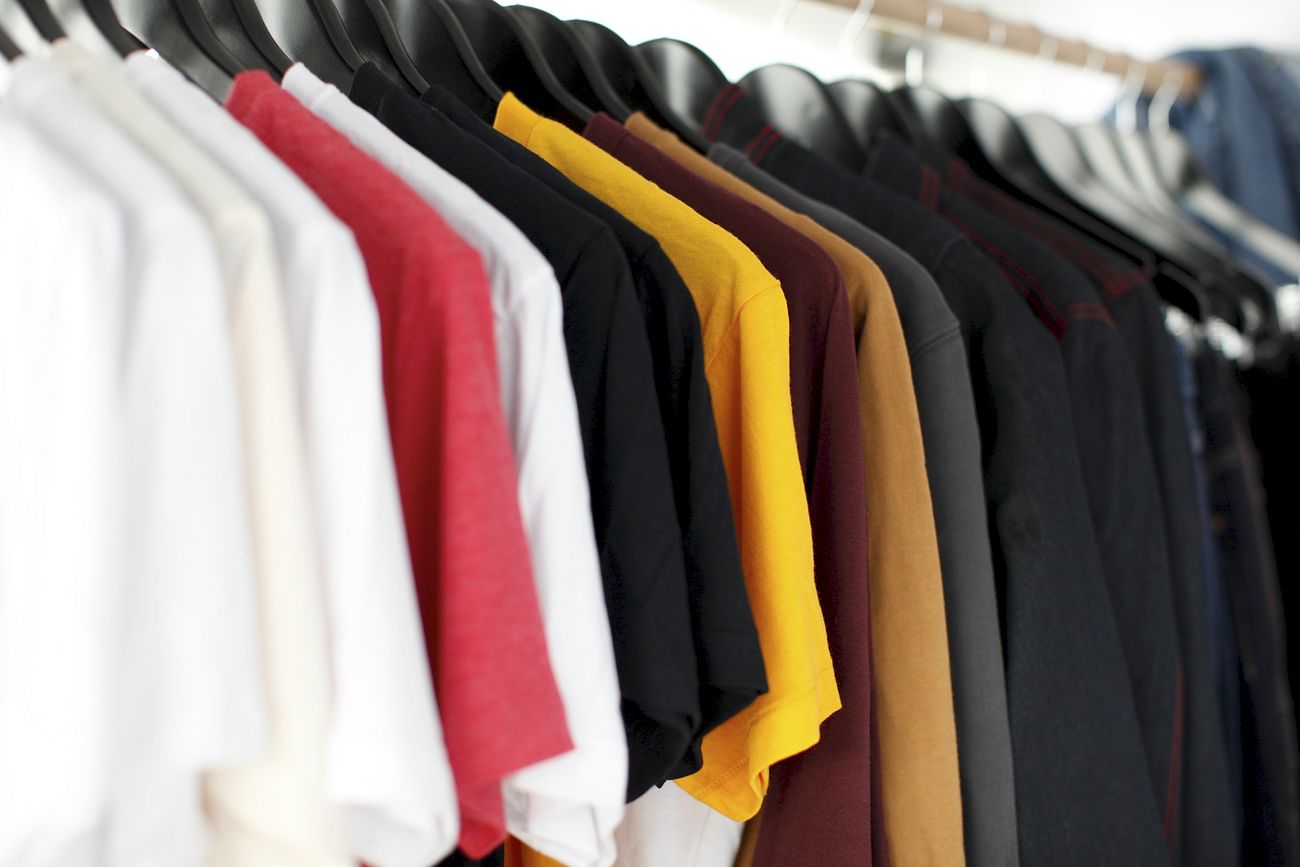FW
DyStar has launched two new dyes of the Levafix ECO range – Levafix ECO Navy and Levafix ECO Forest. The dyestuffs are based on new chemistry, free of p-chloroaniline or other regulatory controlled amines found in many commodity reactive dyes. They are compliant with all relevant Restricted Substance Lists and with Oeko–Tex Standard 100.
Levafix ECO Navy is a neutral navy offering best color constancy in different light sources. Due to its superior chemistry, higher wet and light fastness properties can be achieved compared to conventional reactive navy dyes.
Levafix ECO Forest is a bluish dark-green shade that is a good option for shading reactive blacks. Levafix ECO Forest has a high color yield, a strong build-up and shows better technical performance compared to dark greens that are based on conventional reactive blacks. It has good light and perspiration-light fastness properties; good chlorinated water fastness; and very good fastness to multiple oxidative washes.
These excellent oxidative wash and light fastness properties lead to a more sustainable textile end product due to better retention of the original shade. With this novelty, DyStar provides additional innovation to the textile industry to achieve the best quality with the minimal environmental impact.
www.dystar.com
Pakistan has had to cut down on its spindle capacity during the last three and a half months primarily because of the high cost of doing business. These spindles were predominantly producing exportable goods. Textile mills are unable to pay monthly electricity bills and thus closing down one after another. The closing down of one million spindles means more than one million unsold cotton bales besides one million job losses. The industry fears the whole supply chain would get disrupted amid a world-wide recession and a fall of commodity prices, hindering the ability of local industry to compete internationally.
Weaving units in the country say cotton yarn as raw material should not be exported and instead be used in Pakistan for domestic consumption and for adding value to export goods. The cotton production of Pakistan has decreased by 10.38 per cent in 2014-15 over 2013-14.
The industry feels if the government desires to continue imposing 10 per cent regulatory duty on import of cotton yarn, the vital value added textile export sector, which earns a huge amount of foreign exchange for the nation and generates huge employment, would be completely ruined.
The industry feels the fabric that’s coming into Pakistan from Dubai is actually of Indian origin since there is no fabric manufacturing unit in Dubai.
Pakistan has had to cut down on its spindle capacity during the last three and a half months primarily because of the high cost of doing business. These spindles were predominantly producing exportable goods. Textile mills are unable to pay monthly electricity bills and thus closing down one after another. The closing down of one million spindles means more than one million unsold cotton bales besides one million job losses. The industry fears the whole supply chain would get disrupted amid a world-wide recession and a fall of commodity prices, hindering the ability of local industry to compete internationally.
Weaving units in the country say cotton yarn as raw material should not be exported and instead be used in Pakistan for domestic consumption and for adding value to export goods. The cotton production of Pakistan has decreased by 10.38 per cent in 2014-15 over 2013-14.
The industry feels if the government desires to continue imposing 10 per cent regulatory duty on import of cotton yarn, the vital value added textile export sector, which earns a huge amount of foreign exchange for the nation and generates huge employment, would be completely ruined.
The industry feels the fabric that’s coming into Pakistan from Dubai is actually of Indian origin since there is no fabric manufacturing unit in Dubai.
Leeds City Council luxury brand Burberry’s decision to create a £50 million manufacturing and weaving facility in Leeds will help attract a new generation of top class textile designers.
Judith Blake Councillor, feels says universities who wanted to help provide a supply of skilled textile workers had already contacted her. She further added that Burberry’s announcement was an extraordinary statement by an iconic global brand. Apart from the textile industry, Blake believes that this will have positive knock on-effects other sectors as well, such as IT services, transport, and logistics.
For its heritage trench coat, Burberry plans to employ more than 1,000 people at a new manufacturing and weaving facility, in the heart of Leeds. In 2016, work on the site in the South Bank of Leeds is set to begin with an initial investment of £50m, said Burberry. By 2019, the facility is expected to have been completed. The two existing manufacturing and weaving centres in Castleford and Cross Hills, in West Yorkshire will be replaced by the new facility.
Gerald Jennings, President of Leeds Chamber of Commerce welcomed the announcement and said that it reinforced the South Bank proposition as one of the North of England’s great locations for business. He believes that Temple Works’ proximity to the north’s busiest rail station and the regional motorway network was an important factor in choosing the site. Jennings also wished Burberry every success as they enter Leeds.
The Eurasian geo textile symposium will be held in China in June 2017. This is the first symposium of its kind and will gather all key players in the field of geo textiles. The objective is to support production growth and deliveries in Eurasia. Producers of geo textiles will be connected with new customers and suppliers.
The symposium is designed to cover both nonwoven and woven geo textiles and encompasses the entire value chain, from raw materials to buyers and users of geo textiles, in greater Europe and Asia. China is one of the most dynamic markets for geo textiles. The Asian geo textile market is expected to have the largest demand for geo textiles in the coming few years with China leading the regional claim. Asia Pacific was the largest regional market for geo textiles, accounting for over 43 per cent of global geo textile consumption in 2013.
There is growing demand for geo textile fabrics in the Asia Pacific region due to large infrastructural projects. Countries such as China and India have highlighted geo textiles in their economic plans.
The symposium will cover best practices in specifications of geo textiles, improved understanding of the market for geo textiles and identification of new opportunities for growth.
www.geosynthetica.net/edana-cnita-eurasian-geotextiles-symposium
The only industrial hemp commercial decortication facility in the US has been set up in North Carolina, and is now legalised. Pat McCrory, Governor, passed Senate Bill 313 (by not vetoing it) as ‘an act to recognise the importance and legitimacy of Industrial Hemp research, to provide for compliance with portions of the Federal Agricultural Act of 2014, and to promote increased agricultural employment’, on October 31.
Now, farmers have the option to cultivate hemp with easy access to Hemp, Inc's (OTC PINK: HEMP) multipurpose industrial hemp commercial processing facility in Spring Hope, NC, in North Carolina. Hemp, Inc (OTC PINK: HEMP)’s CEO, Bruce Perlowin says the decision to keep the decortication plant in North Carolina paid off and the company is now more easily able to uphold its commitment to the American farmers in North Carolina.
North Carolina farmers have been committed by Hemp Inc that it would pay more than 10 per cent of the market price for their hemp crops for the first year to boost the industry and help farmers, Perlowin explains. Hemp, Inc, was interested in farmers wanting to process certified organic hemp or those farmers who want to become certified.
This multi-purpose industrial hemp processing facility will process hemp to sell to textile manufacturers and other users and is almost at the start of production. Besides, there is also going to be a testing lab within the facility. David Schmitt, COO of Hemp, Inc. Industrial Hemp Manufacturing, LLC, says, the lab will be for new product development testing and testing raw hemp materials, fibres and hemp-based products. This testing lab, just like the commercial facility, will be the only one for industrial hemp in the US.
African nation Tanzania is looking for investments. The country offers a friendly business environment, underwritten by good investment policy and legislation, as well as a geographic location that makes her a natural regional business hub.
The country has a sizeable market of 48 million people, has raw materials, semi-skilled and skilled labor as well as great incentives for investment. Investments in Tanzania are guaranteed against political risks. The country enjoys an abundance of natural wealth, including unexploited mineral wealth. The climatic and soil conditions give it a comparative advantage in farming a variety of crops.
Tanzania has quota free and duty free entry to the US, Canada, South Korea, China, Japan. So a factory established in Tanzania has a larger market than the national borders. Currently VF Corporation is placing orders in one factory in Tanzania and is considering increasing purchasing from other sewing factories in the country.
Investors are not compelled to enter into joint ventures. Foreigners can have 100 per cent owned investment. Moreover Tanzanian currency is freely convertible to all major currencies and transfer of capital and profit is allowed. Some companies from the UAE have already invested in Tanzania in the petroleum exploration, tourism, mining and other sectors.
Busi Giovanni the Italian socks knitting machine producer has come up with a new knitting machine for medical hosiery industry. The Busi Twin Layer is a high production single cylinder sock machine with latch needles in the dial that enables it to produce technical sports socks with twin fabric. The machine is based on the Busi Idea Terry and it has all the same features and knitting possibilities.
The machine is provided with a patented device that uses the dial needle for production of an internal layer and the cylinder needles for the production of the external layer.
The family owned company has also launched two new medical hosiery knitting machines for large sized medical hosiery. The medical pantyhose, with needle counts from 226 to 366, and the medical terry pantyhose, with needle counts from 226 to 280, enable the production of large socks and pantyhose. Since 1958 Busi Giovanni has specialised in design and construction of single cylinder machines with rib needles in the dial for the production of high quality stockings, socks and tights.
Its products cover a wide area for the men’s, women’s and children’s markets -- classic, patterned, sports, technical sports as well as medical, with special solutions for graduated compression.
www.busigiovanni.com/en/
German manufacturer of worsted yarns for flat and circular knitting sectors, Schwaig-Südwolle Group is set to acquire 100 per cent of Safil and 80 per cent of GTI, the two Italian yarn spinning operations controlled by the Savio family.
Südwolle will acquire Finsavio spa, which owns 100 per cent of Safil and 50 per cent of GTI according to a deal. Currently, GTI controls the remaining 50 per cent. Alberto Frignani, Founder and CEO of GTI will sell most of his stake but retain a 20 per cent share and continue to lead the company as CEO. Sons of founder of Safil, Fernando Savio and owners of Finsavio spa, Alberto Savio and Caesare will continue in their roles at Safil as a part of the wider Group Südwolle.
The deal will help Südwolle in further diversifying its product portfolio, particularly in specialist luxury yarns, and increasing its presence in Europe with vastly improved access to key Italian market. GTI and Safil are both family businesses, which at present generate the majority of their turnover in Italy. Both would benefit from this deal from the global dimension of the Südwolle Group for further growth.
CEO and Managing Director of Safil, Cesare Savio believes that Group Südwolle is a perfect strategic partner for Safil that would enable their company to reach a global dimension and to have access to new types of customers and supply structures in Europe and beyond.
CEO of GTI, Alberto Frignani is convinced that with its new partners Südwolle Group, GTI will be in an excellent position to develop its own unique know-how in carded and combed spinning of natural fibres and innovation product.
Swedish cleantech company OrganoClick has signed a distribution agreement for its textile functional additives in the Taiwanese market with Pinnacle Tek. Taiwanese distributor Pinnacle Tek, has a broad network in the Taiwanese textile industry, and will sell and market OrganoClick's durable water repellent (DWR) that is used for the production of OrganoTex in Taiwan.
Eric Ying, Managing Director for Pinnacle Tek and former President of the Taiwan Textile Federation said that the interest for eco-friendly chemistry is a fast growing trend in the Taiwanese textile industry. Therefore, they were happy to work with OrganoClick who are in the forefront regarding the development of green functional chemistries for textiles.
Since last year, OrganoClick has been focusing on collaborations with local distributors in the Chinese, Taiwanese, South Korean and Japanese market. Mårten Hellberg, CEO OrganoClick said that with distribution in place in Taiwan, they would reach a large number of the textile factories that are sourced by western sport and outdoor brands. To be able to offer the textile factories an easy and quick delivery and technical support by a local partner is very important to get acceptance on the market, he added. Hellberg further stated that this association will give them a good platform to penetrate the market.












